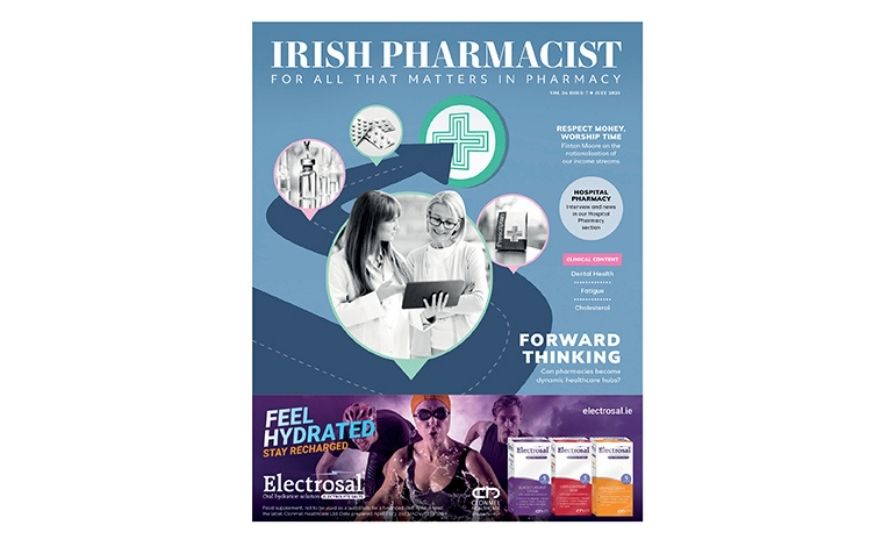When it comes to representation as a profession, pharmacy will be best served by a focus on unity rather than discord, writes Fintan Moore
The IPU had an interesting round of regional AGMs in recent weeks, especially in relation to the voting of members onto the various committees. I have at times over the years heard people question how ‘representative’ the IPU is of the membership, but in my experience, anybody wanting to get involved has ample opportunity to do so — it can actually be risky going to meetings, because you’re liable to be sucked in like quicksand. Historically, people have occasionally ended up on IPU committees because the idea was suggested to them that they should put their name forward, and they couldn’t think of an excuse to decline. However, this year, the competition for places was at times hot and heavy.
I was at the Dublin region AGM, and it was soon abundantly clear that the rules on voting set out in the IPU constitution had been gone over with a fine-tooth comb more often than a schoolkid’s scalp in a head lice outbreak. Without going into the smaller details, suffice it to say that one electoral stroke was out-matched by an opposing counter-stroke. There were enough appeals about procedure to do a GAA congress proud, but both moves seem to have been constitutionally valid. Having said that, it wouldn’t surprise me if somebody puts in a legal challenge, given the way pharmacists seem to keep lawyers the way other people keep exotic reptiles — they’re both expensive to maintain and give back nothing in terms of warmth, loyalty or affection. The constitution was clearly written in more innocent times and is due an overhaul, but that’s for another day.
Reflecting afterwards on the events of the evening, it occurred to me that a lot of time, effort and ingenuity had been expended on what is fundamentally an internal struggle. There were strong differences of opinion on who should be leading, and what those leaders should be doing, but nobody can guarantee that a different approach by different people would generate a better outcome. What is guaranteed, however, is that we are best served going forward with a focus on unity rather than discord. As pharmacists, we are professional business people, in whichever order of importance you prefer, and we function at our best when we behave accordingly. A bit of emotion can be fine in moderation, but cool heads should be the order of the day going forward.
Code Read
In recent years, a lot of pharmacists have seemed to struggle with the inevitable conflicts that arise when the best course of action in the interests of a patient is unfortunately a breach of the relevant legislation. An experienced pharmacist once described the problem well with the phrase that ‘there’s a difference between being an ethical pharmacist and one who does everything by the book’. This dichotomy has always been there, but I think that somehow a ‘fear factor’ has crept in regarding how the PSI would view cases where a pharmacist bent (or broke) the law in order to help a patient. The obvious example that arises on occasion relates to improperly-written CD prescriptions, which have been written by genuine doctors for genuine patients, with the required drug name, dose and quantity all legible. The prescription is not legally valid, but the patient is in pain, so the humane approach is to dispense. The key question should always be — ‘if this patient was my mother, what would I do?’ However, a real anxiety exists for many pharmacists when faced with this.
To somewhat allay this angst, the PSI’s new Code of Conduct is very much to be welcomed for its opening line:
“Always put the patient first and make their health, wellbeing and safety your primary focus.”
The code allows us to make a professional judgement in the interests of the patient, as long as we can justify our actions. This is a fair and reasonable approach which gives us clarity that we have the leeway needed.
Food for Thought
There was an interesting drug development story recently when Biogen announced on 22 October that it would seek approval from the US Food and Drug Administration for its drug aducanumab to treat early-stage Alzheimer’s disease, for which there is currently no available treatment. The market for this would make it worth billions of dollars if approved, and it has the potential to be one of the biggest-earning drugs ever distributed. What gets less publicity, but should be even more fascinating, is that an ever-growing number of studies have linked Alzheimer’s disease with unhealthy Western diets that are high in processed fats, meats and sugars. A switch to a more Mediterranean-style diet with fish, wholegrains, fruit and vegetables can dramatically reduce the chances of getting Alzheimer’s. Exercise and intellectual stimulation have also been found to help. All of these changes can be achieved with none of the costs involved in drug therapy, so an investment now to gently push better population behaviour would be a huge benefit to the nation’s future health.







